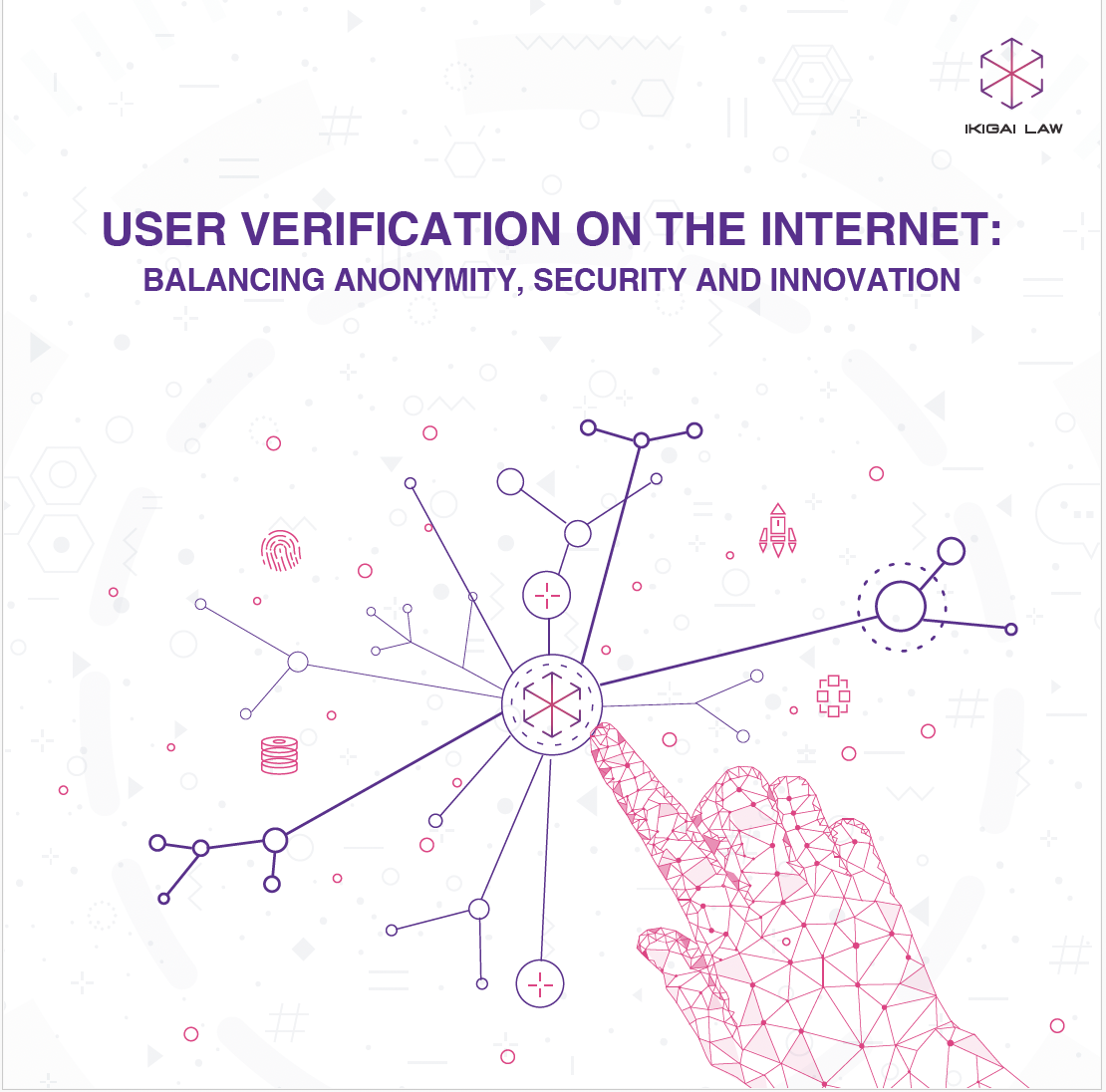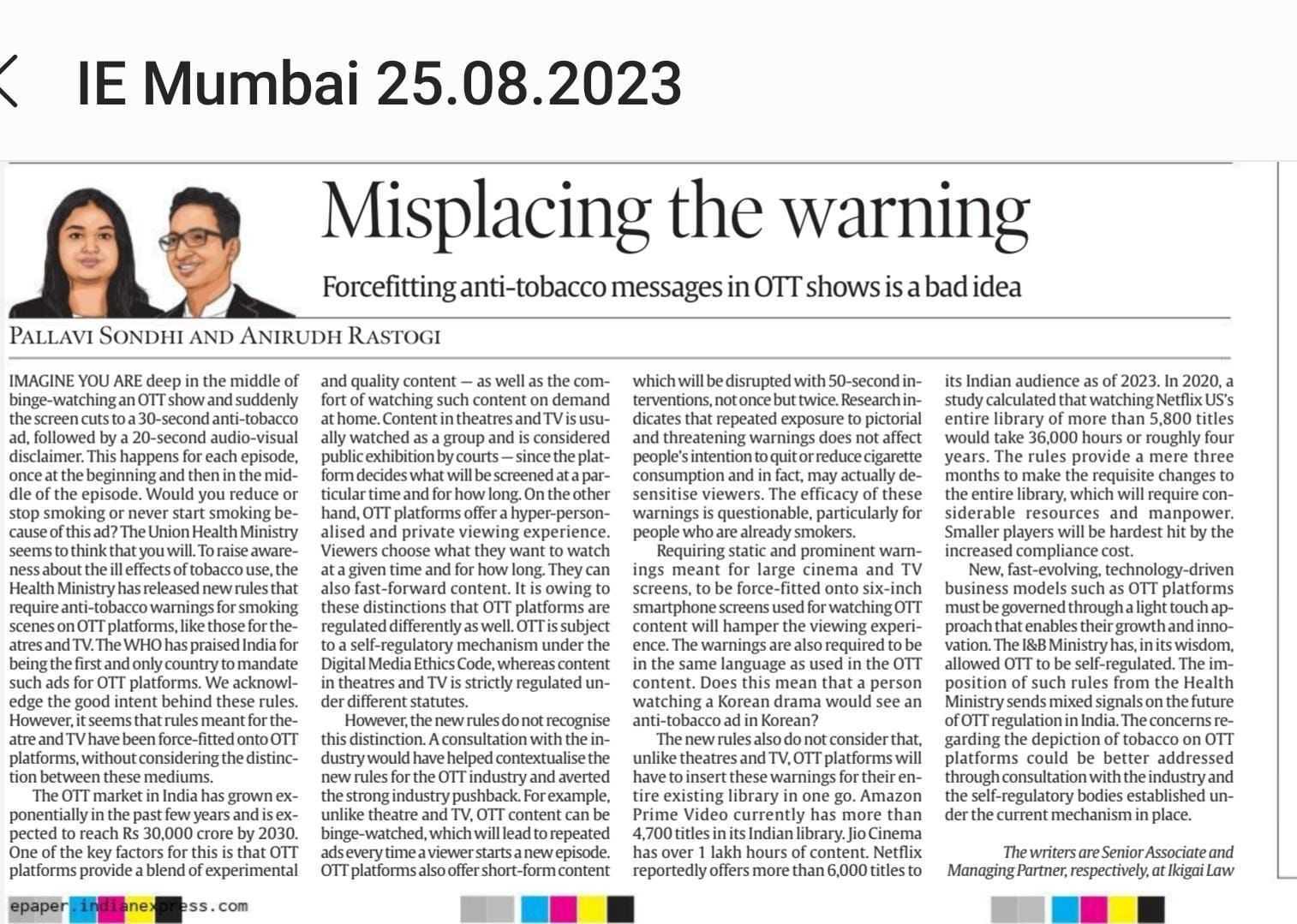Growing instances of online harms have sparked discussions on mandatory verification of users on social media platforms. However, these requirements are also criticised for restricting user privacy, anonymity and free speech on the internet. Ikigai Law’s white paper examines the debate on whether and to what degree should user verification requirements be imposed on social media platforms, examining trade-offs between privacy, free speech, security, and digital innovation.
The white paper covers the following aspects:
- Introduction: Sets the context for the debate on user verification
- Exploring user verification and anonymity: Defines key concepts of identification, authentication and verification and the relationship between them and explores the benefits and risks associated with anonymity.
- Evaluating the need for user verification on social media platforms: Examines verification requirements in financial and telecommunication sectors and analyzes their applicability to social media.
- User Verification in Other Countries: Provides case studies of user verification approaches in South Korea, Brazil, the United Kingdom, and the European Union.
- Conclusion and Recommendations: Offers conclusion and principles to keep in mind when considering user verification on social media platforms in India.
- Key takeaways from the paper are set out below :
- Mandatory user verification on social media platforms may not be the most proportionate solution as it disproportionately impacts fundamental rights such as privacy and free speech. There is limited evidence to suggest that user verification mandates have effectively reduced online harms in other countries, in fact global precedence in countries such as South Korea has shown an increase in cyber threats due to such requirements.
Verification requirements should maintain some degree of anonymity of users. Verification on social media cannot work in the same manner as in the financial and telecom sector, since social media is an avenue for speech and expression. Hence there is a disproportionate trade off in such strict user verification on social media platforms.
There are also broader policy considerations for India, including the need for robust digital infrastructure to safely handle user data, the potential impact on digital innovation and smaller players in the market, and the risk of further marginalizing populations without official identity documents.
Principles
The paper recommends the following principles for approaching user verification on social media platforms:
1. User verification requirements should be proportionate to the intended objective: User verification requirements on social media must meet constitutional standards of proportionality. It must be backed by a law; it should be necessary to achieve its intended objective; the impact of constitutional rights should be proportional to the intended objective; and there should be adequate procedural safeguards to prevent abuse. Strict measures that completely eliminate anonymity, like requiring real names or identity documents, may be disproportionate.
2. Implementing less intrusive measures: User verification is not always the most proportionate solution for addressing online harms. The focus should be on identifying bad actors rather than verifying all users. Less intrusive alternatives that maintain some user anonymity while allowing for targeted identification of perpetrators should be prioritized. For instance, better utilization of existing mechanisms and improved coordination between law enforcement, telecom service providers, and platforms to leverage information already collected such as IP addresses or meta data ; using models such as self-sovereign identity or two-factor authentication.
3. Risk-based verification: The verification mechanism should be proportionate to the risk involved. Different scenarios may merit different responses. It is necessary to consider a spectrum of verification measures – from CAPTCHAs to document verification, depending on the specific context and potential harm. Platforms can have in-built algorithms to check suspicious user activity and prompt verification only in case of suspicious activities.
4. Building a resilient ecosystem: Policy approaches should prioritize building ecosystem resilience over prescriptive solutions. For instance, existing laws should be leveraged for addressing online harms. There should be an increased focus on training law enforcement authorities to track perpetrators through information that is already collected by social media websites and killing and knowledge building among India’s internet using populace, especially for children and young adults.
5. Developing India-specific solutions: India’s policymakers need to develop solutions tailored to the country’s unique societal challenges and economic aspirations. These solutions must accommodate the rapidly growing internet user base, while ensuring the digital infrastructure can safely handle user data. The ecosystem can also consider self-regulation or co-regulation, where platforms develop voluntary codes for online safety and user identification. This method fosters an agile regulatory framework and promotes responsibility among digital players.
By following these principles, policymakers can work towards a balanced approach that addresses security concerns on the internet while preserving the benefits of online anonymity and developing a thriving digital ecosystem. As India continues its digital transformation, it’s crucial to develop nuanced, context-specific solutions that protect user rights, promote innovation, and build a safer internet for all.
Author credits: This blogpost is written by Aarya Pachisia, Associate with inputs from Pallavi Sondhi Senior Associate, Ikigai Law.










